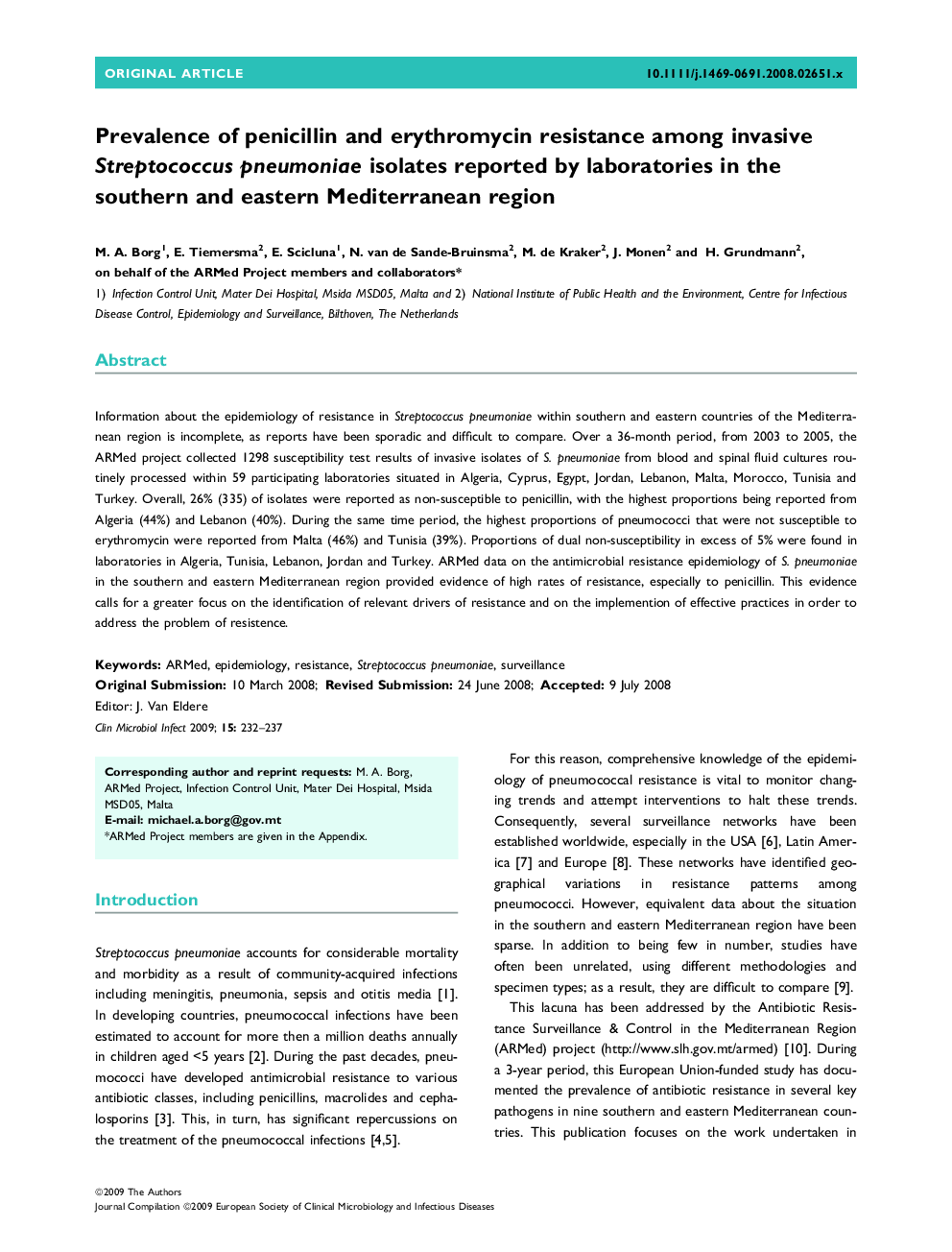| Article ID | Journal | Published Year | Pages | File Type |
|---|---|---|---|---|
| 3398325 | Clinical Microbiology and Infection | 2009 | 6 Pages |
Information about the epidemiology of resistance in Streptococcus pneumoniae within southern and eastern countries of the Mediterranean region is incomplete, as reports have been sporadic and difficult to compare. Over a 36-month period, from 2003 to 2005, the ARMed project collected 1298 susceptibility test results of invasive isolates of S. pneumoniae from blood and spinal fluid cultures routinely processed within 59 participating laboratories situated in Algeria, Cyprus, Egypt, Jordan, Lebanon, Malta, Morocco, Tunisia and Turkey. Overall, 26% (335) of isolates were reported as non-susceptible to penicillin, with the highest proportions being reported from Algeria (44%) and Lebanon (40%). During the same time period, the highest proportions of pneumococci that were not susceptible to erythromycin were reported from Malta (46%) and Tunisia (39%). Proportions of dual non-susceptibility in excess of 5% were found in laboratories in Algeria, Tunisia, Lebanon, Jordan and Turkey. ARMed data on the antimicrobial resistance epidemiology of S. pneumoniae in the southern and eastern Mediterranean region provided evidence of high rates of resistance, especially to penicillin. This evidence calls for a greater focus on the identification of relevant drivers of resistance and on the implemention of effective practices in order to address the problem of resistence.
